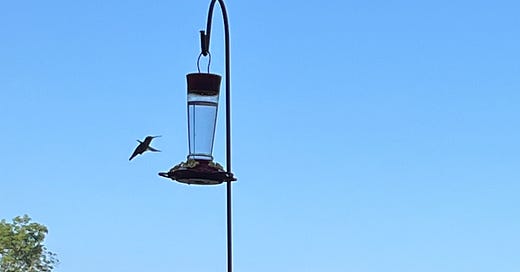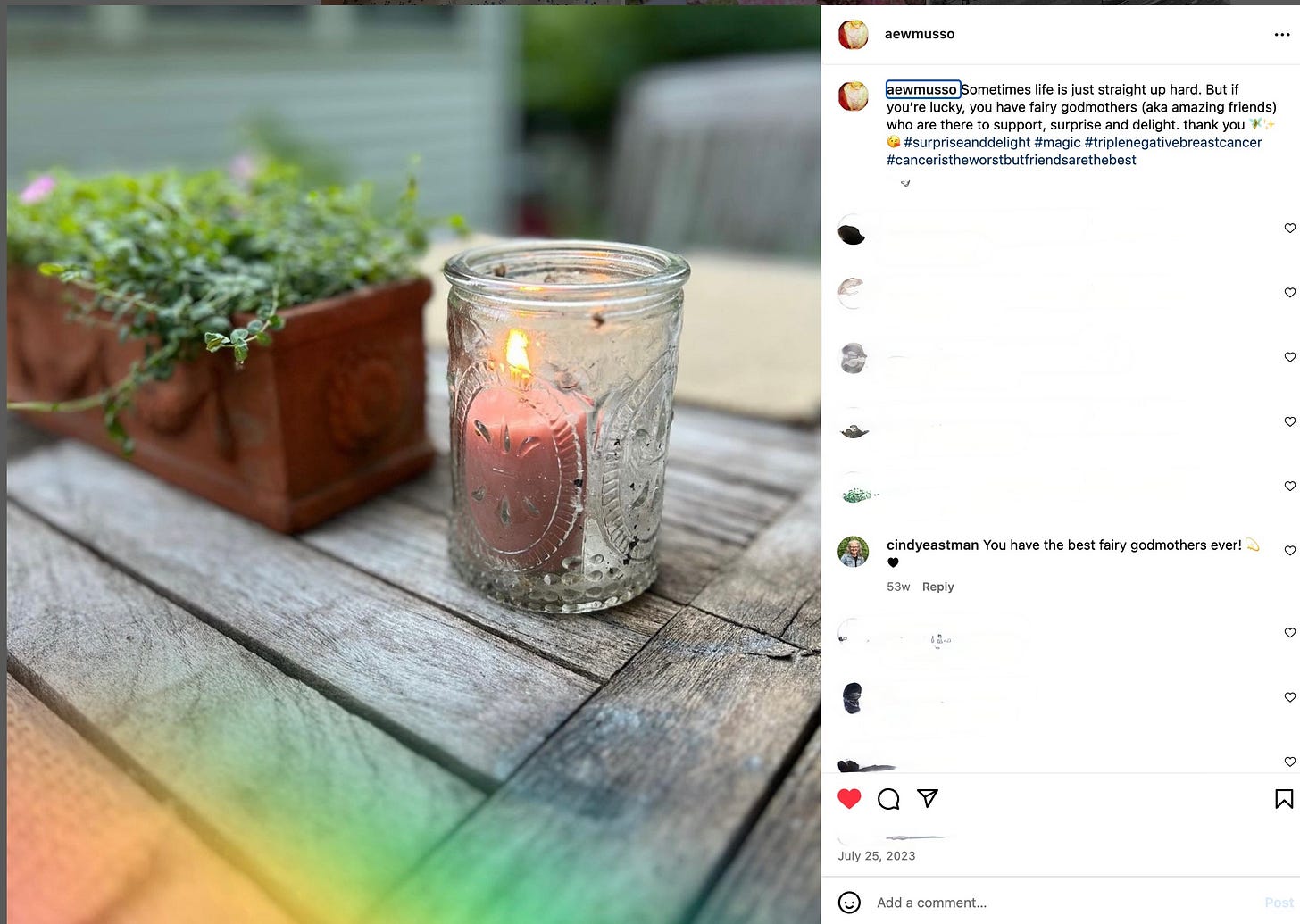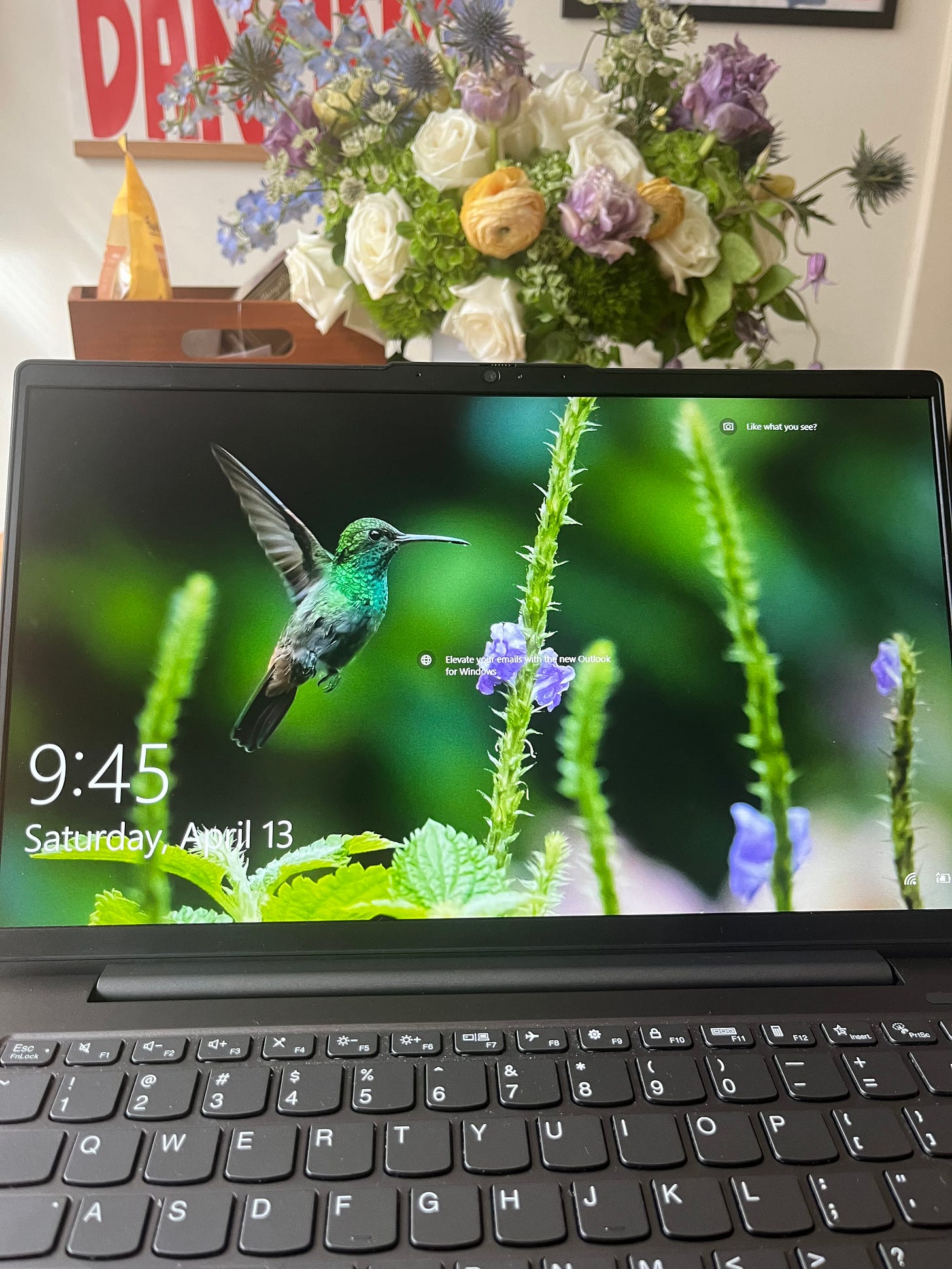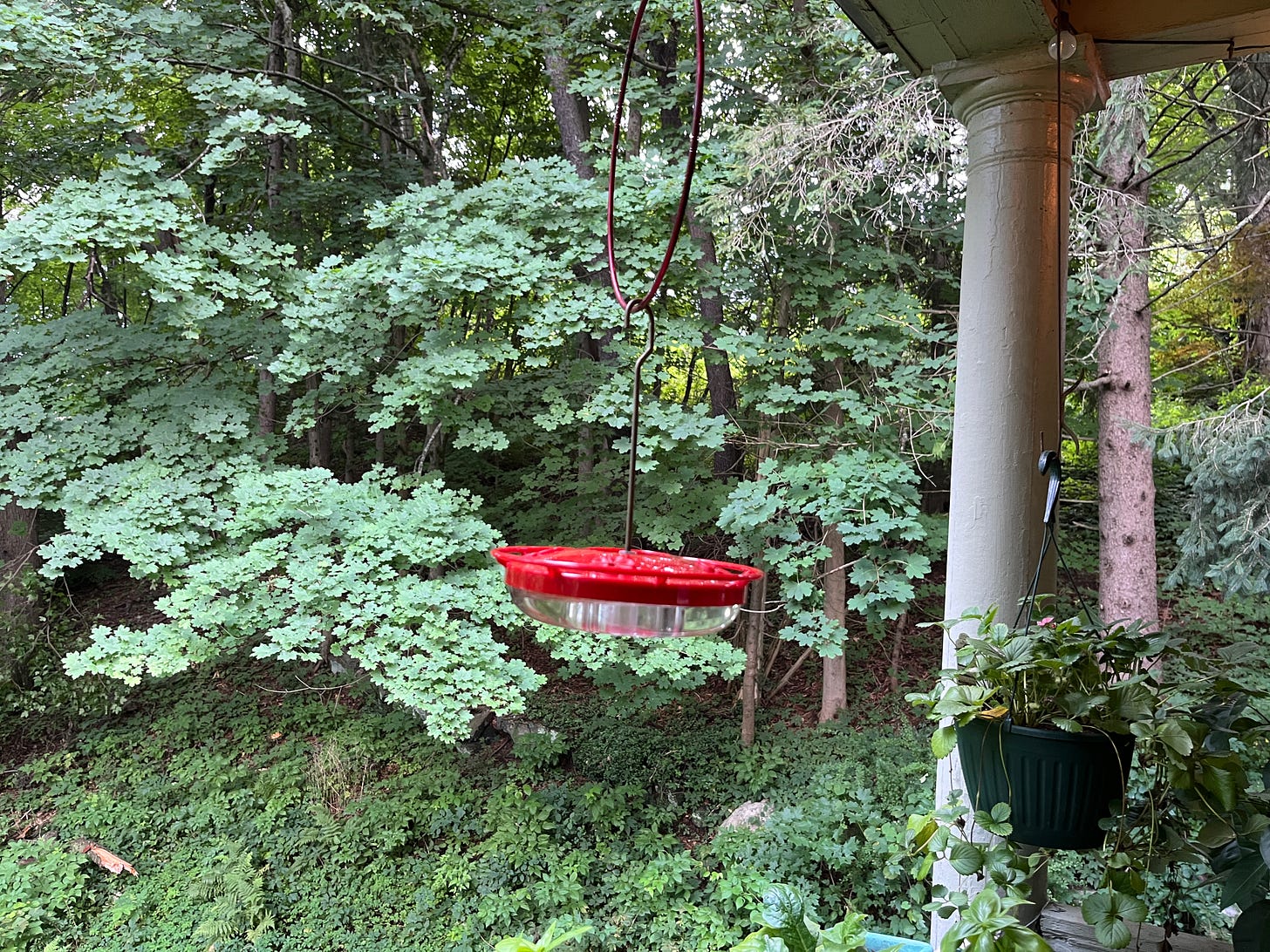I gave it to her as a gift for the newly beautified backyard. Some of her friends—her “fairy godmothers”—had secretly gone over to Annie’s house one day while she and her family were out of town and waved several magic wands over the patio and “poof!”—candles and fairy lights and tiny flowers in terra cotta planters appeared and created a backyard oasis. I brought over the hummingbird feeder to complete the setting as a way to draw those delightful little creatures into the space to make her smile as she concentrated on her healing. I imagined it—for Annie—as a place where she could go and take a break. Soak up some sunshine. Watch the dancing hummingbirds.
I’ve always loved watching hummingbirds dart around feeders and flowers, their little wings impossible to see except for the breeze on the leaves or petals below them as they sipped their little sips. She’d love it! ‘Don’t worry about filling the feeder,’ I told her…I’ll do it when I come over. Which was often.
A couple of weeks later, I asked her if she had seen any. I usually spotted a few when I was there, but I was wondering what she was seeing. Were there a lot? Could she tell if there were different ones?
“They’re so stressful!” she said. “You can stop feeding them!”
“What do you mean?” I asked…confused. Those dainty little creatures stressful?
“They’re always fighting with each other! They’re bullies! It’s definitely NOT relaxing!” she said. And one afternoon I saw it for myself—they were fighting! At least fighting each other for space at the feeder. I’d never seen anything like it. It was a little stressful!
That was over a year ago. As the cancer tore through Annie’s body, thoughts of hummingbirds and feeders faded to the background, especially as the summer turned to fall and then winter. Thoughts instead were focused on keeping Annie comfortable and planning for a much more immediate future than we previously counted on. When Annie died early in the spring from all the complications of stage 4 metastasized breast cancer it was both expected and a complete shock.
One day I was talking to one of her friends and I was wondering how Annie would come visit me. Not that I believed that she would, but if she could, what would her new form be? A hummingbird, I decided. It fit with her sense of humor, because it would be ironic and that would totally be something she’d do. I further wondered if it would be okay to summon such a spirit visitor by say, putting out a hummingbird feeder. Wouldn’t that be cheating? I was being funny…still not really believing if I saw a hummingbird, it would be Annie. But the next morning when I opened my laptop, instead of the usual beach scene or mountain landscape, my screen was filled with a bright green hummingbird.
I continue to be skeptical. In the Writing Through Grief workshop I run, I gave a prompt about finding meaning in our grief. You never know what you’ll get—of course—and one response surprised me. A writer said something like, “I don’t want to find meaning in my grief . . .” and I totally understood what that meant. Why would I want to do more work than is already required by having to live with an open wound for the rest of my life? And now I have to find meaning? I have to look for signs? No thanks. I have enough to do staying upright and not crying every day.
But, of course, I also feel that finding meaning doesn’t mean you’re done grieving. I currently believe that I will never be done grieving the death of my Annie. Ever. And I think that, as time moves forward, not just for me, but for all of us who lived with and loved Annie, who she was will continue to be a part of our lives. And our understanding will expand accordingly as we grow with her and without her in the way that we always thought it would be.
I just finished the book “In My Time of Dying” by Sebastian Junger. A friend recommended it to me as something she read after a loss of her own. The book covers Junger’s experience with his own near-death experience (NDE) and includes details of the emergency surgery to save him as well as background on quantum mechanics and the idea of an afterlife. I hung on every word—daring him to prove to me that I could hear from Annie, while at the same time understanding that the science of it. (Well, I didn’t entirely understand it. It is quantum mechanics after all.)
Signs? Meaning? What do I know anyway? I know that I put out hummingbird feeders at Annie’s house and mine and when they come to sip the nectar and flit about, chirping and, well, humming, I smile. Why would I want all I know of the world to be all there is to it?
I don’t.








Is there a crying emoji on Substack? Not just sad tears but necessary tears, like rain when the clouds burst? Phenomena before meaning?
Everytime I see a humminbird I feel my Dad's presence. He loved "hummers" and was so excited when he saw them.
I read Junger's book. Currently reading The Brave Inbetween by Amy Low. It really speaks to me.